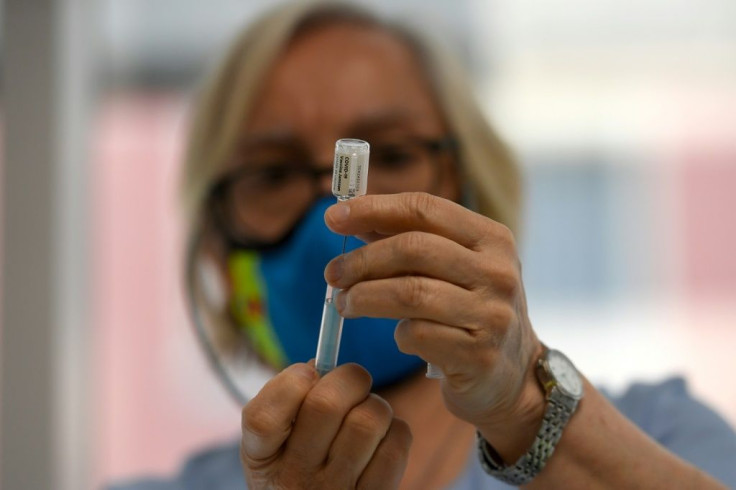'Mix And Match' COVID-19 Vaccines Generate 'Robust' Immune Response: Study
KEY POINTS
- AstraZeneca jab, followed by the Pfizer vaccine, generates the "best immune response"
- Mixing and matching the two COVID-19 vaccines induced "higher antibody levels" in recipients
- The immunity provided by mRNA vaccines lasts for years, says a study
A new study suggests that mixing and matching Pfizer-BioNTech and AstraZeneca-Oxford COVID-19 vaccines could generate a “robust” immune response in recipients.
Researchers from Oxford University ran the Com-COV study designed to determine the effectiveness of different vaccine combinations for the “prime” shot and the “booster.” The study showed that alternating the doses of the Pfizer and AstraZeneca shots boosted the immunity of recipients.
However, the researchers noted that the immune response varied depending on when the shots were administered. They found that the AstraZeneca jab, followed by the Pfizer vaccine, generates the best immune response.
The experts also added that mixing and matching the two COVID-19 vaccines induced higher antibody levels in recipients than those recorded in people who were given the “standard” two-dose AstraZeneca vaccine.
“Both ‘mixed’ schedules (Pfizer-BioNTech followed by Oxford-AstraZeneca, and Oxford-AstraZeneca followed by Pfizer-BioNTech) induced high concentrations of antibodies against the SARS-CoV2 spike IgG protein when doses were administered four weeks apart,” the researchers said in their findings published on the Lancet preprint server Monday, according to CNBC.
“This means all possible vaccination schedules involving the Oxford-AstraZeneca and Pfizer-BioNTech vaccines could potentially be used against Covid-19,” they added.
A study published in May said that mixing vaccines led to more frequent mild to moderate reactions among recipients. However, the adverse reactions were short-lived.
The Com-COV study came after a separate paper published in Nature on Monday suggested that the immunity provided by mRNA vaccines manufactured by Pfizer-BioNTech and Moderna lasts for years.
The findings also suggested that people who received either of the two mRNA shots are unlikely to need boosters, as long the coronavirus does not evolve beyond its current form.
“It’s a good sign for how durable our immunity is from this vaccine,” Ali Ellebedy, an immunologist at Washington University in St. Louise and the study’s lead, told The New York Times.
The researchers also said the protection from the Pfizer and Moderna shots could last a lifetime in people who recovered from COVID-19 before getting vaccinated. However, it is unclear whether the long-lasting effect also applies to people who were never infected with COVID-19 before getting the vaccine jabs.
The experts said that they did not consider the Janssen vaccine (developed by Johnson & Johnson) for the study, noting that it was likely to have less durability than that of the mRNA shots.

© Copyright IBTimes 2024. All rights reserved.






















